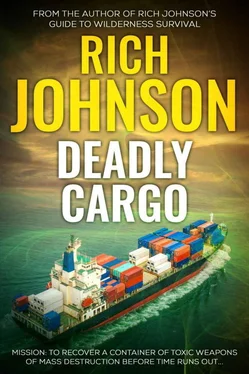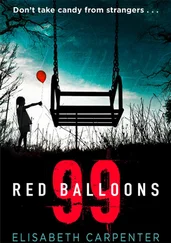Josh pressed his face against the window and squinted into the bright overcast dawn through the crack between the boards. From a distance, he heard the call to prayer, and several men walked past, all heading in the same direction. A few moments later, the narrow lane was empty. The realization struck him: everybody’s gone for prayer . He called out for the guard, but there was no response. “Maybe even the guard has gone to the mosque. This might be my chance,” he whispered under his breath.
Two other rooms in the house had windows that were also boarded, and one of them faced onto an empty field where there was nothing but dead brush and weeds. In that back room Josh squinted between the boards and saw only empty wilderness that stretched away to distant mountain peaks. He gave a shove with his shoulder and the nails in one of the boards squawked. He shoved again, and the board popped free and fell to the ground outside. For a moment, he waited, peeking around then ducking back, to see if anyone outside heard the noise. No one came. With the butt of his hands, he hit the second board, and it came loose. Two more smacks and it was off, giving him room to escape.
Once outside, he loosely replaced the boards. On quiet feet, he moved to the corner and peered around. The rutted path that served as a road was still empty. As silently as he could, he sprinted across to the other small house. Boards covered all the windows. This had to be where Sorgei was being kept… or perhaps someone else being held hostage. These two houses were POW quarters, Josh guessed, and he also figured that he and Sorgei were the most recent prisoners. He stepped to the window and banged on the wood covering.
“Sorgei,” he called in a loud, half whispered voice, “are you there?”
“I am,” came the reply. “Is it you, Josh?”
“Yes. Can you let me in? We need to talk.”
“The door is locked from the outside. It is only opened when they bring food.”
“I know. Listen, put your weight hard against these boards. See if they will come loose.”
Sorgei pushed with his shoulder, but he was slight of build and didn’t have the strength Josh had. The board refused to budge. “I cannot loosen it,” Sorgei sighed after several attempts.
“Kick it with the bottom of your foot,” Josh said. “Quick, before somebody comes.”
“Sorgei backed away from the window just enough to allow him to raise his foot and kick with all his strength. The old rusted nails complained with a loud squawk.
“Good,” Josh said. “Try it again. I’ll pull from this side.”
Sorgei gave it another kick, and Josh pulled the board free. “That’s enough,” Josh said. “I think I can crawl through this opening. Then we need to pull this board back on, so nobody will notice that it has been removed.”
“You would make a good Russian criminal,” Sorgei said.
“I’m not quite sure how to take that,” Josh answered as he scrambled through the opening and with fingers in the cracks between the planks pulled the board hard enough to stick the nails back into their original holes, “but I’ll take it as a compliment.”
“What are you doing here?” Sorgei asked.
“We’re in trouble,” Josh answered. “I don’t know exactly what your deal is with Husam al Din, but he’s gone off and left us swinging in the breeze.”
“Do you think he is not coming back?”
Josh stepped over to the table and sat down. “I suppose that depends. Did you give him what he wanted?”
“Yes, he has the toxin. I finished its development three days ago.”
“What toxin?” Josh leaped to his feet. “I thought you were a weapons scientist.”
“A bioweapons scientist,” Sorgei corrected. “I developed a weapons grade bacteria. His plan is to smuggle himself aboard a shipping container, then release the toxin when he arrives in Miami.”
“Oh, crap! I thought he was planning to just blow up something at the container terminal, not release a biological weapon into the city.”
“It won’t be just the city,” Sorgei said. “This toxin is designed to spread across the whole country.”
Josh moved close to Sorgei, so he could look him directly in the eyes. “Listen man, you must tell me. What is his plan? What kind of toxin is it?”
“All I know about his plan is that he intends to conceal himself and the toxin in the shipping container. When he arrives at the Port of Miami, he will release the bacteria into the population.”
“How does it work? How is it spread?”
“I designed it so that it must have a living host, or it cannot reproduce. If it is inhaled, that person will then serve as the host. The bacteria will live for a few hours inside the host before the host develops a cough that will spread the germ. You would not believe the power of a cough to disperse a disease, and yet this one will appear at first to be nothing more than a cough from a cold.”
“So, if one guy at the port becomes a host, and he carries it home to his family, and they go to the store or to school or to church, they spread it.”
“Exactly,” Sorgei said.
“And before the original victim even knows he’s got something, the disease will have been disseminated to an ever-widening circle of people, who in turn keep spreading it.”
“That is the design. Before anybody gets sick enough to die and arouse the attention of medical people, the disease will be moving like a wildfire across the country. According to our computer model, within ninety days, ten percent of the population will be infected.”
“So what happens to the original host?” Josh asked.
“After two days, he becomes feverish. Two more days and he is deathly ill. The bacteria are designed to break down the cell walls, first in the lungs and then in all the major organs and muscle tissue. As the cell walls break down, fluids leak throughout the body. The victim virtually turns to jelly inside. You have heard of necrotizing faciitis, perhaps – the flesh eating bacteria? This is something like that, but better.”
“After he’s dead, does the disease keep spreading?”
“No,” Sorgei said, “when the host dies, within a few hours the bacteria is dead. It cannot live more than four hours in open air, so it is totally dependent upon a living host.”
“My gosh, man, what were you thinking when you designed such a thing as this?”
“Nothing.” Sorgei stared at Josh with blank eyes. “That is the worst part of my life. In this business, I had to learn to not think of the consequences. It was just my job.” He blinked, but showed no emotion. “I suppose it is not much different than the pilot of a B-52 dropping bombs from 20,000 feet, totally disconnected from what is happening on the ground.”
“Yeah,” Josh said barely above a whisper, “I suppose not. It’s an unfortunate world we live in.”
“That it is,” Sorgei agreed.
“Do you have any information about how Husam al Din plans to smuggle himself into the container?”
“No. I have told you everything I know.”
Josh laid a hand on Sorgei’s shoulder. “Listen, I am not your enemy. The United States is not the enemy of your country.”
Sorgei interrupted him. “Because of your country, the Soviet Union fell apart and my career was ruined. I hate America.”
“Think about who is attacking your homeland now. Think about the attack on the theater in Moscow and the University library, and the bus depot and the children’s school. None of that was from America. You and I are fighting the same enemy, and right now we need to be working together, or neither of us will get out of here alive. I overheard men talking outside my room. In a matter of days, as soon as they receive word that Husam al Din’s mission has succeeded, they intend to kill us.”
Читать дальше












